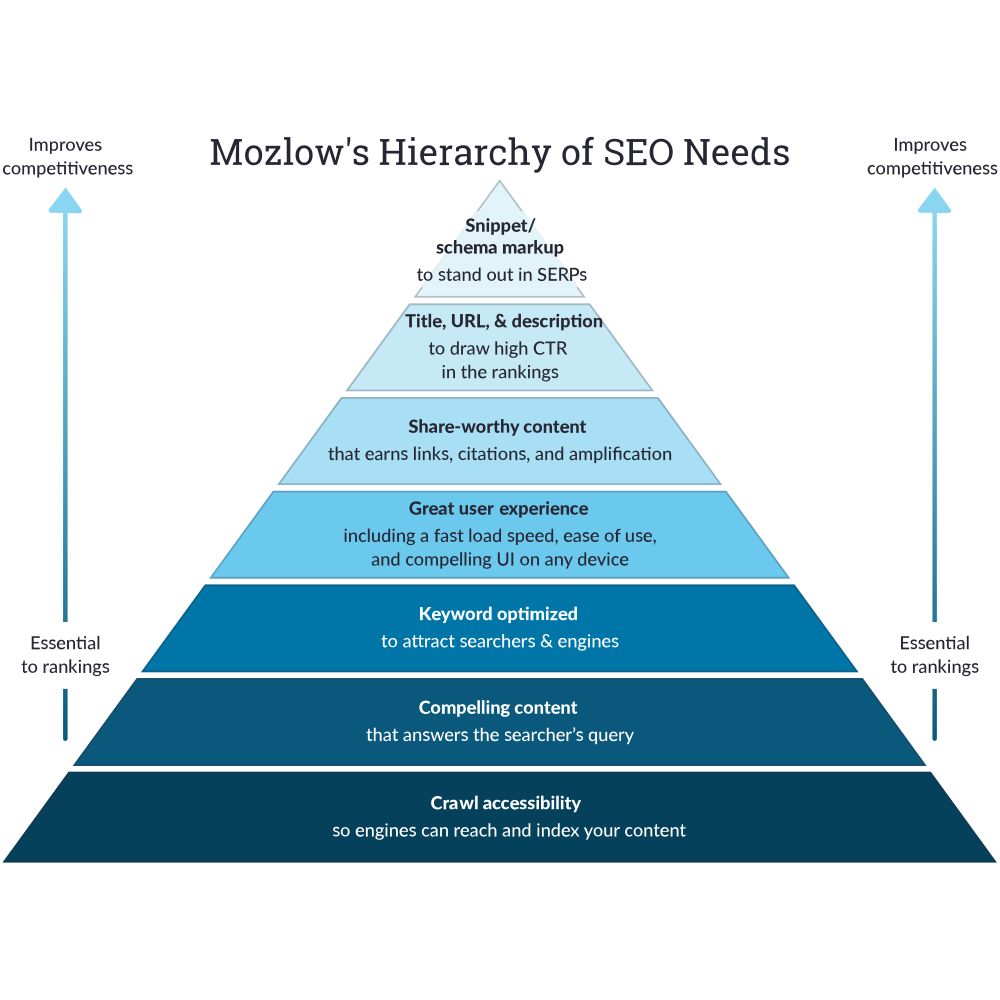Search Engine Optimization (SEO)
Also see: Search Engine Marketing (SEM)
SERP = Search Engine Results Pages
Good hierarchy to follow:

EAT = Expert, Authoritative, Trustworthy.
Do
- Make pages for users primarily, not search engines.
- Use tricks that you would feel comfortable sharing with a Google employee.
- Fulfill user's intent when clicking on your page from search results.
- Evaluate what content your competitors are providing that you aren't.
- Have a comprehensive page on a topic.
- Place words you're trying to rank for closer to the beginning of your page's title.
Don't
- Automatically generate content.
- Create pages with little to no original content (copied from somewhere else).
- Show different content to crawlers.
- Duplicate content.
- Have multiple, weaker pages for variations of a keyword.
- Have long redirect chains. Ideally less than 3, no more than 5.
Useful tools
- Moz.com's Domain Authority test provides some useful domain analyses.
Misc
User intent types:
- Informational: Searching for information.
- Navigational: Searching for a specific website.
- Transactional: Searching to buy something.
Formula:
- Search the keyword(s) you want your page to rank for
- Identify which pages are ranking highly for those keywords
- Determine what qualities those pages possess
- Create content that’s better than theirs
Unless specified otherwise, this work is licensed under a Creative Commons BY-NC-SA 4.0.